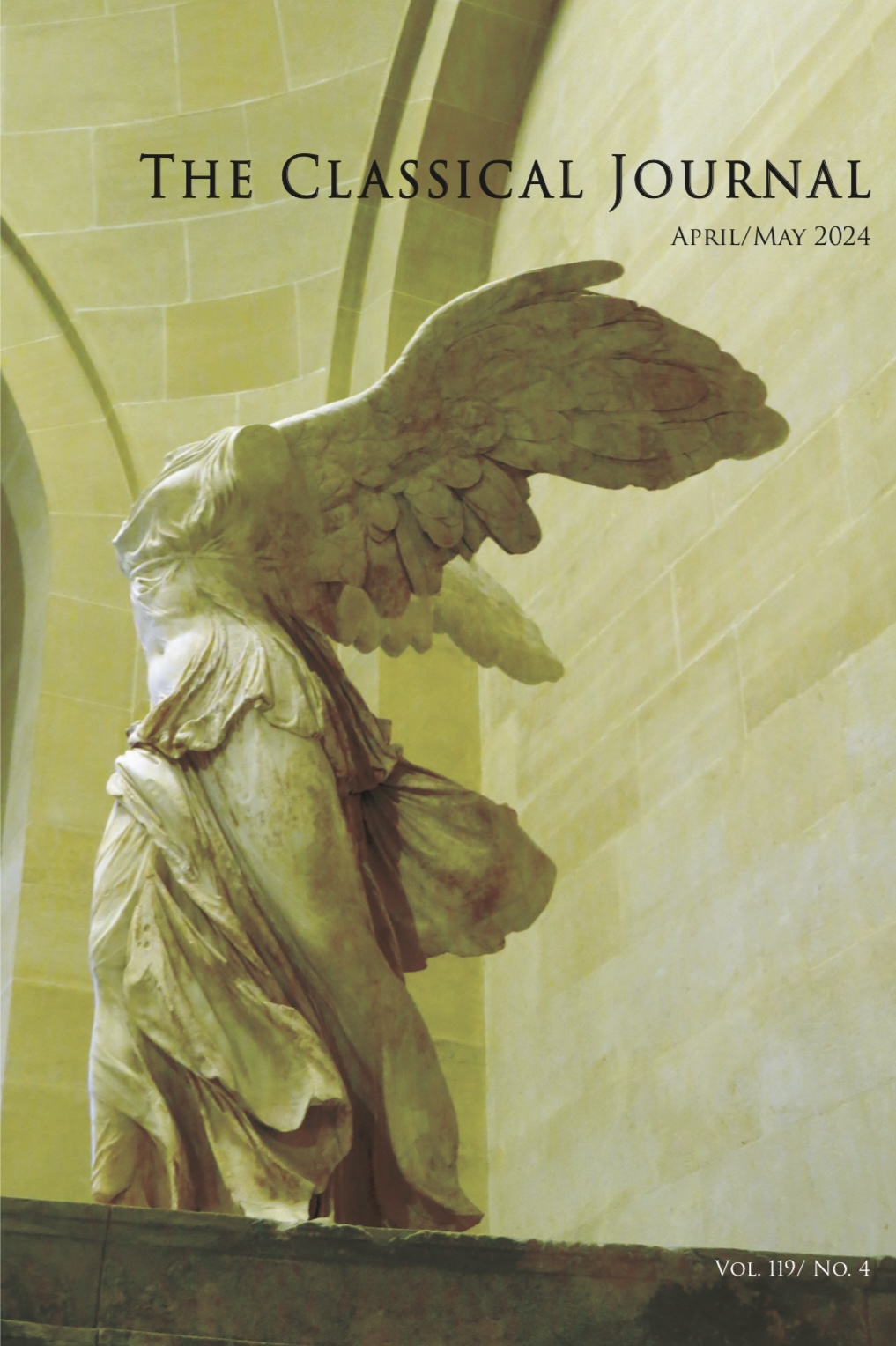The following articles are contained in CJ
108.3
Abstracts of Articles
INNOVATION AND TRADITION REVISITED: THE NEAR-SYNONYMY OF ΑΜΥΝΩ AND ΑΛΕΞΩ AS A CASE STUDY IN HOMERIC COMPOSITION
This paper examines the synonymy of Homeric ἀμύνω and ἀλέξω- verbs that occupy overlapping semantic spheres and appear at times in the same formulae-from diachronic and synchronic perspectives. An examination of the semantic and morphological relationships of these two verbs suggests that in Homer they have developed a near-suppletive relationship (at times they function as one semantic unit). The perspective of the Iliad, however, reveals the limits of this relationship. In closing, this paper illustrates how ἀμύνω and ἀλέξω are manipulated by narrator and character to mark the Iliad's plot structure and advance its themes.
MARRIAGE CONTRACTS, FIDES AND GENDER ROLES IN PROPERTIUS 3.20
This paper considers the ways in which Propertius both makes and undermines his lover-poet's claims of elegiac fidelity in 3.20. This poem depicts the elegiac relationship as simultaneously marriage-like and non-marital by using the language of fidelity, drawing on both its traditional associations with legal ceremonies and agreements and its elegiac sense. Propertius uses the lover-poet's relationship to fides to have him occupy multiple and contradictory male roles in the poem. Ultimately, he fails to conform to any of them, which destabilizes the gender roles of the characters in the poem.
FUTUTA SUM HIC: FEMALE SUBJECTIVITY AND AGENCY IN POMPEIAN SEXUAL GRAFFITI
This article argues that Roman women could contest their expected role as passive sexual objects through writing and reading sexual graffiti. Building from evidence of female literacy in the Roman world, I first examine how Pompeian women claimed themselves as sexual subjects and agents in graffiti they wrote about themselves. I then explore how they could temporarily experience sexual agency through reading aloud graffiti that defamed men as penetrated or polluted sexual objects. Finally, I suggest that through these graffiti, women simultaneously resisted and reinscribed their marginalization within the dominant sexual paradigm.
Forum: ROLE-PLAYING IN ROMAN CIVILIZATION AND ROMAN COMEDY COURSES: HOW TO IMAGINE A COMPLEX SOCIETY
AMY RICHLIN


